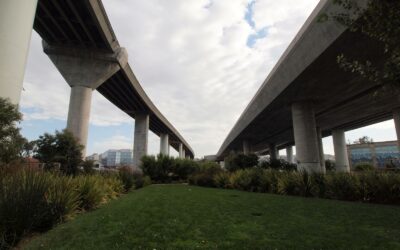Executive Summary: Contracting can be the most fantastic of businesses, but also one of the toughest. Read about some of the things that make it the best and the worst of businesses.
What makes contracting unique? I think that everyone thinks their business is different from everyone else’s. As I travel the country, I hear it from every contractor I meet: “well, our business is different than any other contractor’s”. Well, I got news for you – good or bad, that’s not true. Your business is just like everyone else’s.
Is being a contractor different?
My banker said it’s the toughest business there is, but for owning a restaurant.
The bad news first. Anytime someone says to me “I got good news and bad news, which do you want first?”, my answer’s always the same – I want the bad news first. So, here is the bad news about contracting, first.
The cash flow. Since your first two bills are the insurance and the bond, and they both come before the job even starts, you’re starting the job in a cash abyss with your own voice bouncing off the sidewalls of said dark, scary hole echoing “where’s the cash…where’d my cash go!!!???” This continues all the way to the end of the project until your client releases the 5% retention on the project sixty days after the architect calls the job complete. Ouch.
Work now, negotiate later. If you’re the general contractor to a State agency, or a subcontractor to just about any general contractor, your contractual rights to negotiate first, work later, are limited. Every general contractor has the clause where you (the subcontractor) are obligated to execute disputed work instantly with the far-from-timely dispute resolution paragraph there in the contract as a backstop to pay you 75 cents on the dollar six months after you complete the work. Or did I overstate it – 50 cents? And two years later.
Now the good news. This is the best business on the planet. It’s up early, it’s working late, it’s building America with your hands.
The public uses your product. If you drive north on the Blue Route west of Philadelphia right before it hits the Schuylkill Expressway – I built that. If you flush your toilet in Honolulu, your waste goes thru a wastewater treatment plant – I built that. If the water pressure was low in Aberdeen, Washington in 1999 it’s because we had to reduce the entire town’s water pressure to test our new waterline (and then bring the new system on line) – I did that.
It’s far from an ego thing, and I’m not implying I built these structures alone – it’s a feeling of contributing to the public good. It’s being able to say that you left something behind and that something in the world was improved because you helped make it so.
It’s different and good people. Construction brings together all walks of life. In construction, because it can be so technically complicated, you see the well- educated PhD types, to kids who barely made it to high school, much less graduated from it. You see wholesome God-fearing people, to ex-felons starting over after running drugs in and out of Mexico for a decade. You see all ethnicities from Eastern European to Irish to Mexican to Filipino to Polynesian to African American. And at the end of the day, all these people have one commonality – they’re all trying to build something and put food on their table.
My story. I’ve got a back story to each of the snippets above. They’re all my stories. And if you’ve had the privilege to be a builder, you’ve got hundreds of your own too.






0 Comments